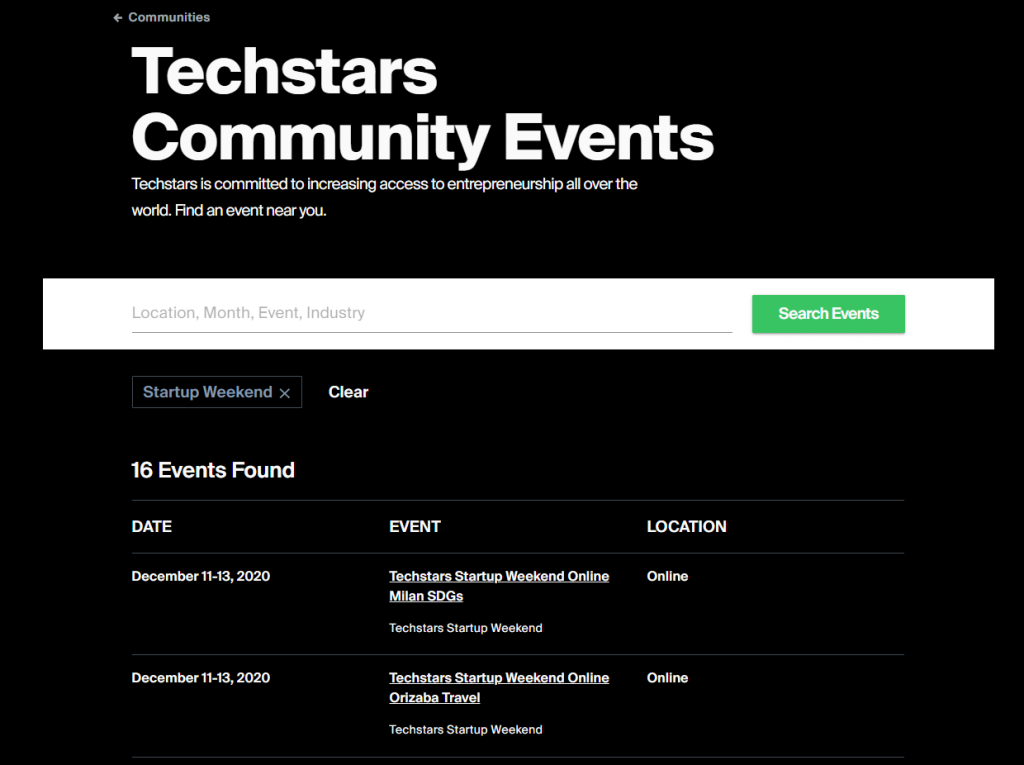Globally, 305 million startups launch annually, and that number is rapidly increasing.
No matter what product or service a startup introduces, it will likely need software developers—for building MVP, project/software development, scaling, etc. As founder and CEO of a new startup, you’ll encounter a lot of competition for hiring the developers you need to move from startup to success.
As a founder, you probably originated the idea for your startup, but may lack the technical skills to bring it to fruition… which is where a software programmer comes in. However, as a startup, you can’t afford a lot of employees yet, so you need to hire employees who are 100% on board with your ideas and goals.
You need someone with superb problem-solving skills (because you can bet there’ll be a few bumps along your path!), capable of performing the tasks and creating the projects you need. Someone who is a good cultural fit for your new company, believes in your ideas and values, and is willing to go the extra mile to overcome the friction of a slow start as the ball starts rolling. So where do you find the perfect person for the job…who is also affordable?
Oh, by the way, we’ve put all of our articles and resources on how to find and hire developers here.
How do I hire a programmer for a startup?
In our latest HR survey, 74% of respondents said their main IT recruitment challenge was finding qualified developers.
You are not alone in wondering how to find a programmer for your startup. Fortunately, there are several good options available to you.
As you read through the strategies below, think about how your hires fit into your business model, and what you need them to do. Research to determine exactly what type of programmer or developer you will need (Java developer, Javascript developer, Python developer, etc.) and which computer languages best suit your application. You need to know exactly what you are looking for before you create your job description and find a hire. Once you’ve done that, you can choose from the strategies below to find your ideal hire.
Here are 6 ways to hire a programmer for your startup:
Strategy 1: outsource programming to cheaper locales
If you just need someone to create your website, for example, you probably don’t need a full-time hire or a development team. Outsourcing your programming to a country where less pay is accepted may be a good, relatively inexpensive, solution for you. You can find someone to perform the tasks you need, and then you can thank them and move on. You don’t have to make a permanent hire, and if you form a good relationship with them, you will likely have a resource you can call upon in the future as needed.
You can use hiring platforms such as YouTeam, DevCom, and VenturePact, which match you with vetted developer teams offshore; pricing isn’t readily available, but no doubt they fall somewhere between freelancer prices and U.S. remote salaries, without the hassle of having to find someone yourself.
Gigster analyzes your needs and assigns a development team to you (developer and designer) to help you complete your project. If you need cheaper or prefer more control over your hires, you can research programmer salaries and ability by country: 25% of U.S. programming jobs are done by foreign coders.
You will find that individuals/teams in other countries can be considerably cheaper than local ones. You’ll only be paying for the hours you need rather than for full-time personnel, so you are already saving a lot of money. If you need a particular specialization that is hard to find and expensive as a hire, you can probably find someone fully capable and available for part-time contract work. Most of your remuneration to an outsourced programmer will be for hours worked—not benefits, overtime, or vacation pay.
Be fully prepared before outsourcing, to avoid disappointment and frustration. A few quick tips to keep you from having to say, “I just wish I had…”:
- Know how much experience you would like your programmer to have, how many hours you expect them to work each week, how often and how they should communicate, what development languages they’ll need for your applications.
- Know the expected scope of your project and the specifics that will need to be worked on.
- Be VERY clear on due dates, project expectations, timeline estimations. Use weekly milestones that can be reviewed and updated as needed. This allows you to check progress and revise expectations realistically.
- Work with your talent—don’t just hand the project over to them and hope they get it right. Make yourself available: check in with them daily; talk to them at regular intervals.
Many countries around the world educate and train programmers and developers. This DAXX article lists Ukraine as one of the top outsource destinations for IT professionals, for example, and offers advice on outsourcing to other foreign countries as well.
Strategy 2: outsource to freelance sites
Most freelance sites have programmers and software developers available. If you’re not a developer or programmer yourself, use a site that vets its programmers. You’ll need someone with experience, who knows what they are doing and how to meet your needs.
FreeUp and Toptal are good places to start. Both focus on tech candidates and have pre-vetted freelancers for hire; FreeUp only accepts the top 1% of talents who apply to their site, which means you are getting the best talent in the freelance pool. Toptal is more specific on the type of talent, and claims to have the top 3% of freelance software developers for hire.
Strategy 3: hire remotely
For more than random job needs here and there for your startup, remote hires offer a good option for either part-time or full-time employees.
You save here by not having to buy expensive office equipment or pay for extra office space for extended personnel. Full-time remote hires receive the same benefits as in-house employees, but it’s still considerably less expensive than having a person in the office.
Other advantages, according to Forbes, are that remote workers tend to have improved productivity while working from home (35-40% more productive than in-office counterparts), are more authentically engaged with their work than in the office space (producing higher quality work), miss fewer sick days, have a higher retention rate, and save companies $11,000/year per telecommuter, on average.
Here are a few niche job boards specifically targeting remote tech workers (i.e., programmers, developers, designers) to get you started:
- WeWorkRemotely ($299 per job post)
- JobsPresso.co (starting at $249 for 90 days)
- Remotive.io ($378/job)
- AuthenticJobs.com (starting at $149/month for a standard listing)
Strategy 4: find a startup partner who can code
No, we’re not kidding—here’s an example (there are 472 million entrepreneurs worldwide, surely there’s a good match for you in there somewhere!).
There are actually a lot of individuals who make a career of launching startups, and who then move on to another startup, and another… A lot of ex-Amazon, ex-Apple and ex-Google type employees are ready to start out on their own. Or, you might find someone ready to sell their most recent startup and launch a new one.
There’s a growing group of startup entrepreneurs who network and know many others like themselves. And lots of them are coding experts. You will want to find someone who will share your dream and your enthusiasm for your venture. This is probably the hardest strategy to implement, but if you are willing to let someone else in from the ground floor up, it’s one that can play out very nicely for your startup.
To find a partner, you’ll need to have your business model drawn up, from business plan to prototype, so you have something tangible to show. You need to be completely transparent about your assets and limitations, your financial situation and timeline. With any luck, your proposed partner will share your enthusiasm, and the two (or more) of you will be able to build your venture together until you are ready to grow your employee base further.
Where can you meet these possible partners? Websites like F6S.com and CoFoundersLab; coworking spaces; startup weekends; developer meetups and conferences; hard tech sites like GitHub and Stack Overflow; business oriented blog sites like Medium.com; and social networking sites like LinkedIn.

Strategy 5: seek referrals
The top three sources for finding hires today are referrals (24.5%), career sites (23%), and job boards (18%).
Referral statistics generally come from employee referrals, and as a startup looking for employees, you probably don’t have any yet. But, a referral is just a suggestion for an employee from someone you know, and can come from anyone in your network. People you talk to at meetups and startup conferences; on LinkedIn; your circle of fellow entrepreneurs; college sidekicks; former colleagues… you get the idea. LinkedIn asserts that referrals tend to result in quality hires, with 45% of employee-sourced referrals staying 4 years or more, on average, while only 25% of job board-sourced employees stay longer than 2 years. So if you’re looking for dedicated developers, a referral might be your best bet.
Referrals also increase your chances of connecting with prospects; someone who knows you might reach out to them is much more likely to open your email or text (the preferred contact method for most tech candidates). In your introductory contact, mention who referred them and briefly share your company vision, mission, and goals. If your ideas resonate with them, you may have found the perfect first employee!
Strategy 6: patronize startup help sites
Startup help sites are a gold mine for founders and entrepreneurs. Some are job boards focused on developers specifically looking for work in a startup; others are all-inclusive sites that help startups match with angel and venture capital investors, accelerators and funds; find co-founders and employees; provide networking, advice, and free exposure for your startup; and more. Here are a few to check out:
“All things startup” sites:
- F6S: free job postings, advice on how to find a programmer for your startup, opportunities to meet investors and get funding, find co-founders, discount deals for startups, etc.
- AngelList: free job postings available, connect with investors and talent, post your profile for job-seekers to view.
Startup-focused job boards:
- Startupers: job listings are free!
- VentureLoop: $99/job for 30 days for venture-backed companies; clients have unlimited free job postings.
–
Whether you outsource, hire remotely or in-office, or find a partner for your startup, the programmer you need is waiting for you to discover them.
We hope that at least a few of these strategies on how to find a programmer for your startup will be viable for your particular situation, and will jumpstart your search for the perfect programmer. Some strategies will be easier on your budget than others, but each can, ultimately, yield a qualified programmer who can fulfill your startup needs. Don’t forget to make those needs crystal clear in your job description, no matter which route you go!
Good luck!

